- Home
- Anne Hampson
Enchanted Dawn
Enchanted Dawn Read online
"You're very much a man, Brand Royce,"
Teri said flippantly. "And in consequence, I've no interest in you whatsoever."
Brand’s eyes gleamed. "Fair enough, Teri," he said smoothly "At least we know where we stand. But you may be passing up a wonderful opportunity" he mocked. "I'm a very eligible bachelor."
"So what?" Teri snapped.
"So perhaps I find you attractive."
Teri fell silent. This conversation was becoming much too intimate. She cast Brand a flickering glance from under her lashes. He was smiling faintly; his eyes, humorous and yet probing, were soft in a way she had not noticed before.
“I think you should leave," Teri said suddenly. "Right now!"
Enchanted Dawn
Anne Hampson
Harlequin Presents edition published March 1976
ISBN 0-373-70632-4
Second printing September 1977
Third printing December 1978
Original hardcover edition published in 1972
by Mills & Boon Limited
Copyright © 1972 by Anne Hampson. All rights reserved.
Philippine copyright 1978. Australian copyright 1978.
Except for use in any review, the reproduction or utilization of this work in whole or in part in any form by any electronic, mechanical or other means, now known or hereafter invented, including xerography, photocopying and recording, or in any information storage or retrieval system, is forbidden without the permission of the publisher.
All the characters in this book have no existence outside the imagination of the author and have no relation whatsoever to anyone bearing the same name or names. They are not even distantly inspired by any individual known or unknown to the author, and all the incidents are pure invention.
The Harlequin trademark, consisting of the word HARLEQUIN and the portrayal of a Harlequin, is registered in the United States Patent Office and in the Canada Trade Marks Office.
Printed in Canada
CHAPTER ONE
STARS in a velvet sky, exotic perfumes on the drowsy air; cicadas in the nearby mango trees and the distant primeval drumbeat filtering the hush of an African night.
Teri stood on the back stoep, her brooding eyes staring unseeingly into the substance and shadow that lay beyond the reflected arc of light emitted by the lanterns on the stoep. From the room behind a man joined her - a handsome man, broad of shoulder and serious of countenance. His frank blue eyes, so like Teri’s, also brooded. His hand found her shoulder and she turned, burying her face against him. But the ready tears were instantly checked and she drew away, apologetic and contrite.
‘What right have I to cry, or to lean on you for support?’ she began. ‘Jon, will either of us ever recover?’
‘Time heals,’ her brother reminded her. ‘Yes, we will recover.’ But his accents, low-toned and gentle, were edged with pain and bewilderment rising from the very depths of him. His marriage had been happy, his wife devoted to their little daughter — or so everyone had been led to believe. It was no wonder Jon failed to understand why Rosalind had run off with Kemp Franton, Teri’s fiancé. ‘We might even come to deride our weakness when, a long while hence, we discover our hearts weren’t broken after all.’ He dropped his hand from her shoulder and Teri gazed into the drowsy darkness again, shaking her fair head in a gesture of despair.
‘I suppose it is weakness,’ she agreed. ‘Were we strong we could have taken the blow stoically, remembering that we aren’t the only ones upon whom such misfortune has fallen.’ Her thoughts went fleetingly to her laughing little niece, asleep in the big bedroom at the end of the house. At four years of age Wendy was highly intelligent and observant. She had cried and cried for her mother at first, but with the resilience and swiftly-fading memories of early childhood she had recovered, her affection for her aunt having helped, for Teri had immediately given up her job and gone to housekeep for her brother. It had not been a pleasant interlude, that three-month period immediately fol-lowing the scandalous behaviour of Kemp and Rosalind.
And then, only a month ago, right out of the blue, had come the offer of Karunda Farm in the Transvaal— and from a most unexpected source.
‘If only I knew where I had failed Rosalind,’ Jon was saying in a sad reflective tone. ‘I gave her plenty of money, I helped with Wendy, I took Rosalind out—’ He broke off, and Teri guessed the reason was the ache rising in his throat - an ache with which she herself lived practically all the time.
‘What could they see in one another? Rosalind, thirty, and Kemp only twenty-four?’ The man should always be older, Teri thought. Kemp was four years older than she — but six years younger than Rosalind. Yet he wanted to marry Rosalind, although Jon had not yet made up his mind whether or not to divorce his wife.
A bitter curve of her brother’s lips and then,
‘There must have been some attraction, Teri. And yet when I look at you I don’t know how Kemp could have jilted you - not even for Rosalind.’
Not even for Rosalind. Pain wrenched at Teri’s heart. Those words revealed so much. Jon was still in love with his wife.
‘Likewise I can’t imagine anyone leaving you. I’m very sure you’ve been a wonderful husband and father. Rosalind didn’t know just how lucky she was.’ For wonderful husbands were rare these days, Teri mused, determined never again to trust a man as long as she lived.
‘At least we have each other.’ Jon leant against a wooden support at the end of the stoep. ‘And we’re exceedingly fortunate in having a splendid farm like this passed to us. We must work hard, Teri, and not let Mirrie down.’
Inclining her head in swift agreement, Teri found herself living again that half hour or so when, astounding both her stepchildren, Mirrie had calmly offered to make them a present of her farm in South Africa.
Mirrie had been married only four months to George Manders, and most of this period had been spent at Karunda Farm, a vast holding left to Mirrie by her first husband on his death three years previously. Since then it had become neglected, but on meeting and marrying George, when both he and she were on holiday, Mirrie had hoped her new husband would take an interest in the farm.
‘It is of course your father’s domineering attitude that has brought about this situation,’ Mirrie had declared, although the affectionate glance she sent in his direction robbed her words of their bite. ‘He insists on being the breadwinner, and says I must live in a home of his providing. So here I am with the farm on my hands.’ She spoke in expressionless tones, but both Teri and her brother knew instinctively that the offer was designed to provide them with an anchorage at this most crucial time in their lives. A new start, in a new country ... hard work and, eventually, forgetfulness.
‘And to think,’ murmured Teri, speaking her thoughts aloud, ‘that we were quite apprehensive when Father wrote to say he had married - in haste. Do you remember?’
Jon nodded.
‘Yet the moment we saw Mirrie we were happy for him.’
They had both refused Mirrie’s generous offer, suggesting she sell the farm and invest the money, but she had shaken her head. Her husband had worked so hard on it - had built it up from nothing. No, she could not have strangers taking over.
We are strangers, thought Teri, advising her stepmother to employ a manager.
‘I’ve had one in, for three years, and the place has gone to ruin - almost,’ she amended swiftly.
‘You have no relatives to whom you could give it?’ Jon had asked, and Mirrie shook her head.
‘None except you,’ she returned gently, and added, glancing at her husband, ‘I’ve discussed this with your father - and I’ve also given it much private thought.’ She would have willed it to George, she went on, and therefore it would eventually have come
to them. ‘You might as well have it now,’ she ended, but still the two were reluctant to accept so magnificent a gift.
‘It doesn’t seem right,’ Jon had begun, when his father interrupted him.
‘Mirrie wants it this way,’ he said, his grey eyes moving from Jon to Teri. T felt, as you do, that Mirrie should sell the farm, but as she won’t hear of it, and as this is what she prefers I’m in full agreement with her.’ An awkward pause and then, ‘We believe that a complete change of work and environment will help you both.’ He looked at his daughter. ‘Mirrie has a great understanding of your feelings, having once been jilted as you were, Teri, practically on the eve of her wedding. She left England - went to South Africa to get a job and to forget. She found happiness and feels you will do the same. Perhaps not in a similar way,’ he added in emotional tones as he noticed the quick glances of both his children, ‘but Mirrie wants to help you and if you refuse to accept her offer it will be selfish. I know that sounds an odd thing to say, but it’s a true one for all that because Mirrie has set her heart on your making something of the farm which her husband loved.’ He paused, but neither spoke. ‘I shall be sorry to see my children go so far away, but I know in my heart it’s for the best.’
Both Teri and Jon were still reluctant to accept the gift, and after they had talked the matter over in private they put their idea to Mirrie, who although plainly disappointed at the gift not being accepted unconditionally, agreed to the compromise. Teri and Jon would take over the farm, but only so long as Mirrie accepted a proportion of the profits. ‘There won’t be any large profits for a while,’ she told them a little sadly. ‘You’ll just about be able to live, and perhaps have a little something over for the odd extra. I’ll agree to your proposal, if I must, but I can’t accept any money from you for the first two years.’
This was agreed upon, mainly because Jon and Teri were fully aware that in addition to the farm’s being in a neglected state, they themselves were complete novices where farming was concerned.
No time was wasted and now here they were, having arrived at Karunda just over a fortnight ago.
‘Have we done the right thing?’ Teri brought her gaze from the spangle of lights that had suddenly penetrated the thick belt of trees fringing the bank of the Sakubu River which separated their neighbour’s land from Karunda Farm. So Brand Royce was home from his visit to England. What was he like? A bachelor, Mirrie had said, a tough and dedicated stock-breeder and citrus planter who lived for his work and considered a woman’s usefulness began and ended with her function of procreating the race.
‘We got on fine with him,’ Mirrie had gone on to say. ‘But he’s a hard man, who takes a lot of understanding. He’s self-sufficient and, as I’ve said, he hasn’t much opinion of women.’
Teri’s mouth twisted and she thought, ‘We’d have had little in common anyway, but as that’s his attitude we’ll have absolutely nothing.’
‘Yes, Teri, we’ve done right.’ Her brother’s answer brought her mind from their unknown neighbour and she nodded absently.
‘If only the next year or two were past,’ she whispered, tears escaping from the cloud of pain behind her eyes. She had loved Kemp with all her heart, and he had loved her - once - she was sure of it. Strange that no one had noticed anything. Whenever the four of them were together Kemp and Rosalind had been friendly, but that was all. No surreptitious glances of affection, no manoeuvres to be alone. And yet they must have been meeting secretly for some time. A month to the wedding . . . and with the flat all cosily furnished and the wedding presents piling up ... Teri turned to her brother. T doubt if a year or two will be long enough,’ she added despairingly.
‘Don’t wish your life away, Teri dear, not even for the balm of forgetfulness. It’s far too precious. Let’s throw ourselves into this, and when we begin to see the improvements we’ve made we shall at least find some compensation in achievement. This in itself must surely mitigate our hurts.’
‘If only I hadn’t met Kemp, and he’d never known Rosalind—’
‘Teri, no blame attaches to you. And “if" is always so futile a word to use in misfortune.’
She swallowed, her eyes again wandering to the lights which now appeared to be on in every room of the white, colonial-style homestead across the dark river. Yet Brand Royce lived alone, so Teri had been told by their houseboy, who seemed to know every-thing.
‘The big baas has a cousin who comes to visit him—’ Jaru had rolled his eyes until they seemed to be all whites. ‘Very beautiful, Miss Linda, but he not want to marry her.’ The boy shook his head. ‘Master Royce, he don’t have much time for women.’
And as she had no time for men, thought Teri, it was most unlikely that there would be any neighbourly visits.
The following morning Teri went into Oaksville to do some shopping, using the station wagon they had bought a few days previously. It was a most disreputable contraption and, having early discovered the inadequacy of the brakes, Teri drove with exceptional care. After parking it she went off, first to the news agents, Jon having requested her to get him a ledger.
Several customers were before her, and as several came in immediately after her she was not quite sure of her turn. When she did eventually ask for a ledger she spoke simultaneously with someone else.
‘A couple of pads of notepaper—’ The voice stopped at the same time as Teri broke off.
‘I’m sorry,’ she murmured, glancing at the man, and automatically noticing his tallness and his air of distinction. She gestured with her hand, inviting him to take his turn, which was evidently before hers. He made a similar gesture and said,
‘Carry on.’
Had the situation really registered Teri would have acted differently, but her mind was on other things - on Kemp, and Rosalind, and the way they had acted towards Jon and herself. All the way to Oaksville her thoughts had been occupied with her unhappiness and by the time she had arrived in town she was overcome with the familiar emotional fatigue which always followed a dwelling on the recent past. Her empty heart wept, her very soul seeming to be drained of all but despair. And yet through it all she knew her brother’s situation was vastly worse than hers.
‘I went out of turn,’ she murmured to the tall man at her side and, to her surprise, she heard an indrawn breath of impatience and the man actually turned his back on her, walking to the other side of the shop. It then dawned on Teri that her action had been rather like refusing a seat in a bus after someone had risen to offer it to her. Blushing hotly, she made her request and, on being served, quickly left the shop.
Strangely, the incident remained with her, because she had made a fool of herself, and with this thought occupying her mind she completely forgot about the brakes when, having finished her shopping, she began to drive out of the town. In front of her a long low white car was travelling at an average speed and when it stopped suddenly as a child ran into the road, Teri went straight into the back of it. The bump unnerved her, but she managed to get out, realizing to her dismay that a crowd mainly made up of natives was already beginning to gather round. From the white car a long lithe body emerged and Teri looked up to face the man she had seen in the shop. It was too mortifying! She wanted to sink right into the earth.
‘So it’s you again.’ His disdainful glance flicked her before he turned to survey the damage done to his car. The bumper had taken the brunt of the impact, but both his rear lamps were smashed.
T’m terribly sorry. ...’ She was trembling and her legs were like jelly. She felt hot all over; her shirt and jeans seemed to be sticking to her body. She would have liked to get back into the station wagon and sit down, but she supposed the man would be wanting her name and address. T didn’t expect you to stop.’
‘Obviously.’ A pair of hazel eyes regarded her flushed face with a sort of bored intolerance. ‘Women never do know what to expect. They just drive - regardless.’
Her chin lifted at that. She said icily,
‘If you hav
e a piece of paper I’ll give you my name and address.’
His eyes glinting at her tone, he said,
‘We’ll forget it,’ and he added, ‘Let’s hope our paths don’t cross again.’ And with that he walked away and, sliding into his car, drove off, leaving Teri practically surrounded by grinning, curious natives. The colour had left her face and she held a hand to her chest as a pain shot through it. She must have come into sharp contact with the steering-wheel, she thought abstractedly, getting into the wagon. Sounding a loud blast on the horn she eased forward; the crowd moved out of her way and she was again following the car, driving slowly because she was still considerably shaken. Once out of the town the white car shot ahead, very soon leaving her far behind.
So bad was the general condition of her own vehicle that the added damage wasn’t even noticeable and in view of this Teri saw no reason for worrying Jon with an account of the accident, especially as the man had not taken her name and address. But she was white and shaken and she sighed with relief when Jaru said Jon was out with the tractor harrowing the mealies.
‘Miss Wendy is with him,’ Jaru said. ‘She likes riding on the tractor with the baas.’
After a rest Teri felt much better and she busied herself with the lunch. But her thoughts kept reverting to her two encounters with that hateful man. Never had she met anyone so sarcastic, so imperious, and if it was his wish that their paths should never cross again it was Teri’s fervent wish also.
At half-past one Jon came in, tired and hot after hours under a ruthless glaring sun. The back of his shirt was soaked, his eyes red from the dust that had blown into them.
‘I’ll take a turn this afternoon,’ she offered, but Jon shook his head.
‘You’ve enough to do with the poultry and the house and Wendy.’ He glanced down at his daughter. The heat did not seem to affect her, only in that she had already acquired a beautiful tan and the fair hair was bleached almost white at the front, as was her aunt’s.

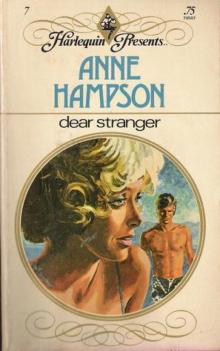 Dear Stranger
Dear Stranger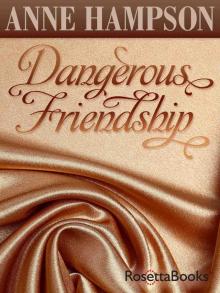 Dangerous Friendship
Dangerous Friendship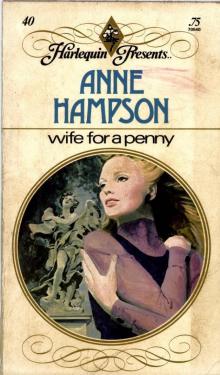 Wife for a Penny
Wife for a Penny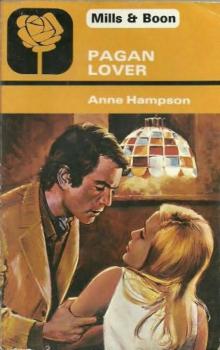 Pagan Lover
Pagan Lover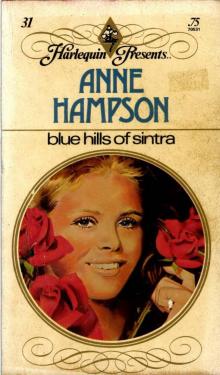 Blue Hills of Sintra
Blue Hills of Sintra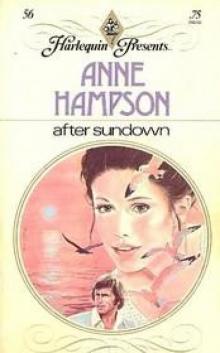 After Sundown
After Sundown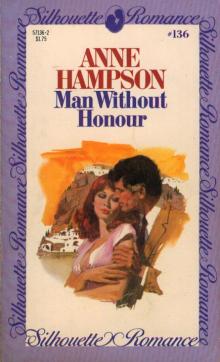 Man Without Honour
Man Without Honour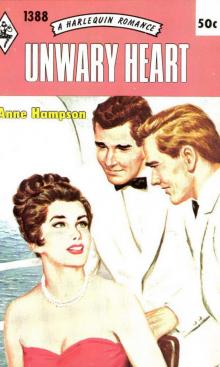 Unwary Heart
Unwary Heart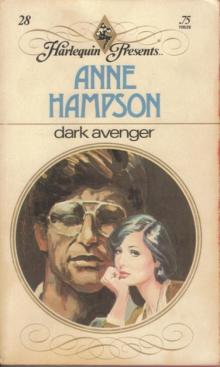 Dark Avenger
Dark Avenger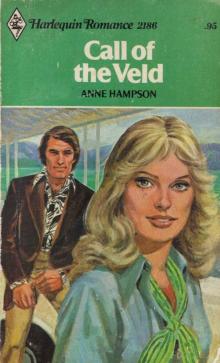 Anne Hampson - Call of The Veld
Anne Hampson - Call of The Veld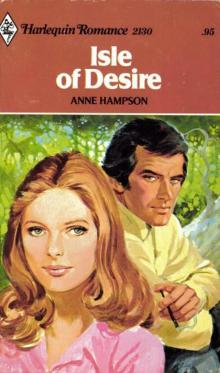 Isle of Desire
Isle of Desire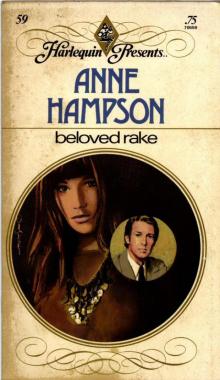 Beloved Rake
Beloved Rake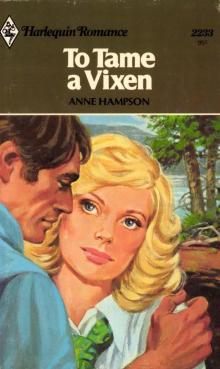 To Tame a Vixen
To Tame a Vixen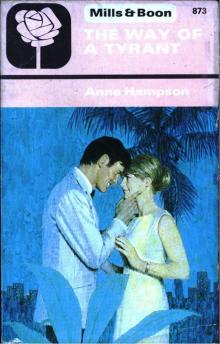 The Way of a Tyrant
The Way of a Tyrant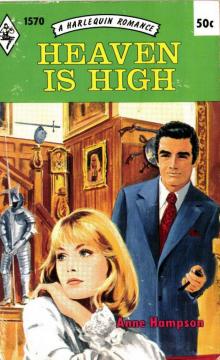 Heaven is High
Heaven is High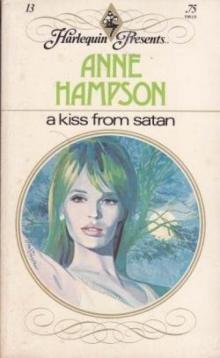 A Kiss From Satan
A Kiss From Satan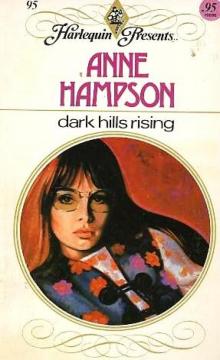 Dark Hills Rising
Dark Hills Rising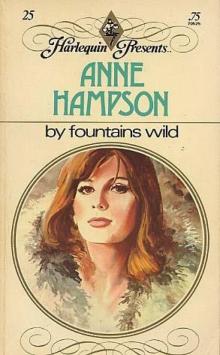 By Fountains Wild
By Fountains Wild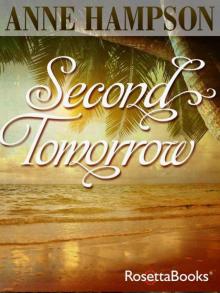 Second Tomorrow
Second Tomorrow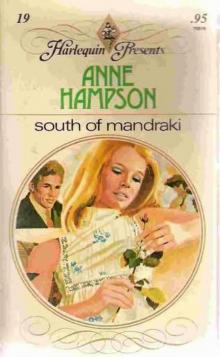 South of Mandraki
South of Mandraki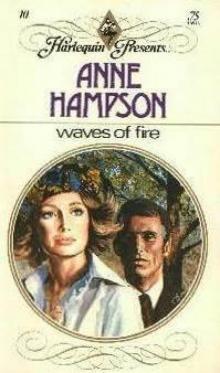 Waves of Fire
Waves of Fire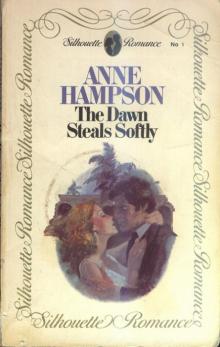 The Dawn Steals Softly
The Dawn Steals Softly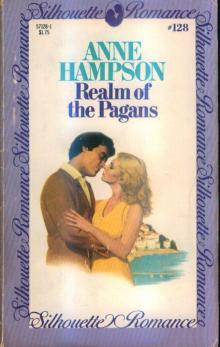 Realm of the Pagans
Realm of the Pagans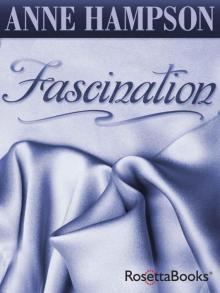 Fascination
Fascination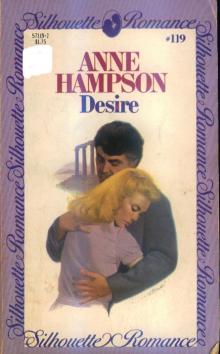 Desire
Desire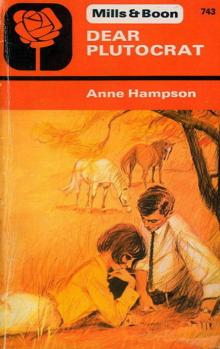 Dear Plutocrat
Dear Plutocrat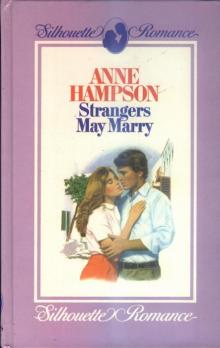 Strangers May Marry
Strangers May Marry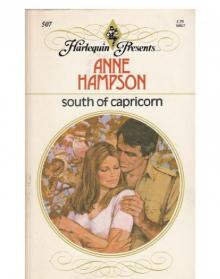 South of Capricorn
South of Capricorn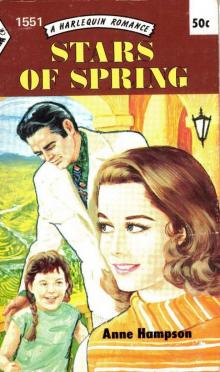 Stars of Spring
Stars of Spring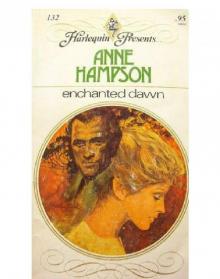 Enchanted Dawn
Enchanted Dawn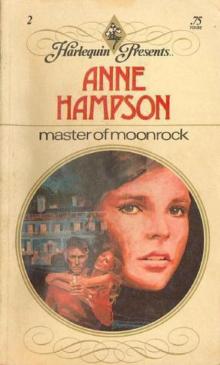 Master of Moonrock
Master of Moonrock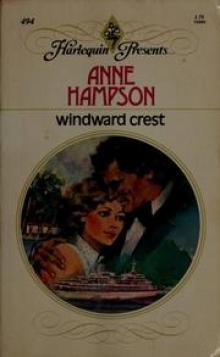 Windward Crest
Windward Crest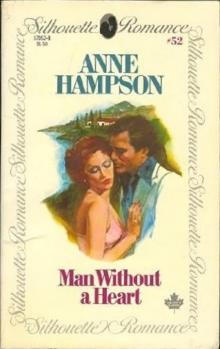 Man Without a Heart
Man Without a Heart